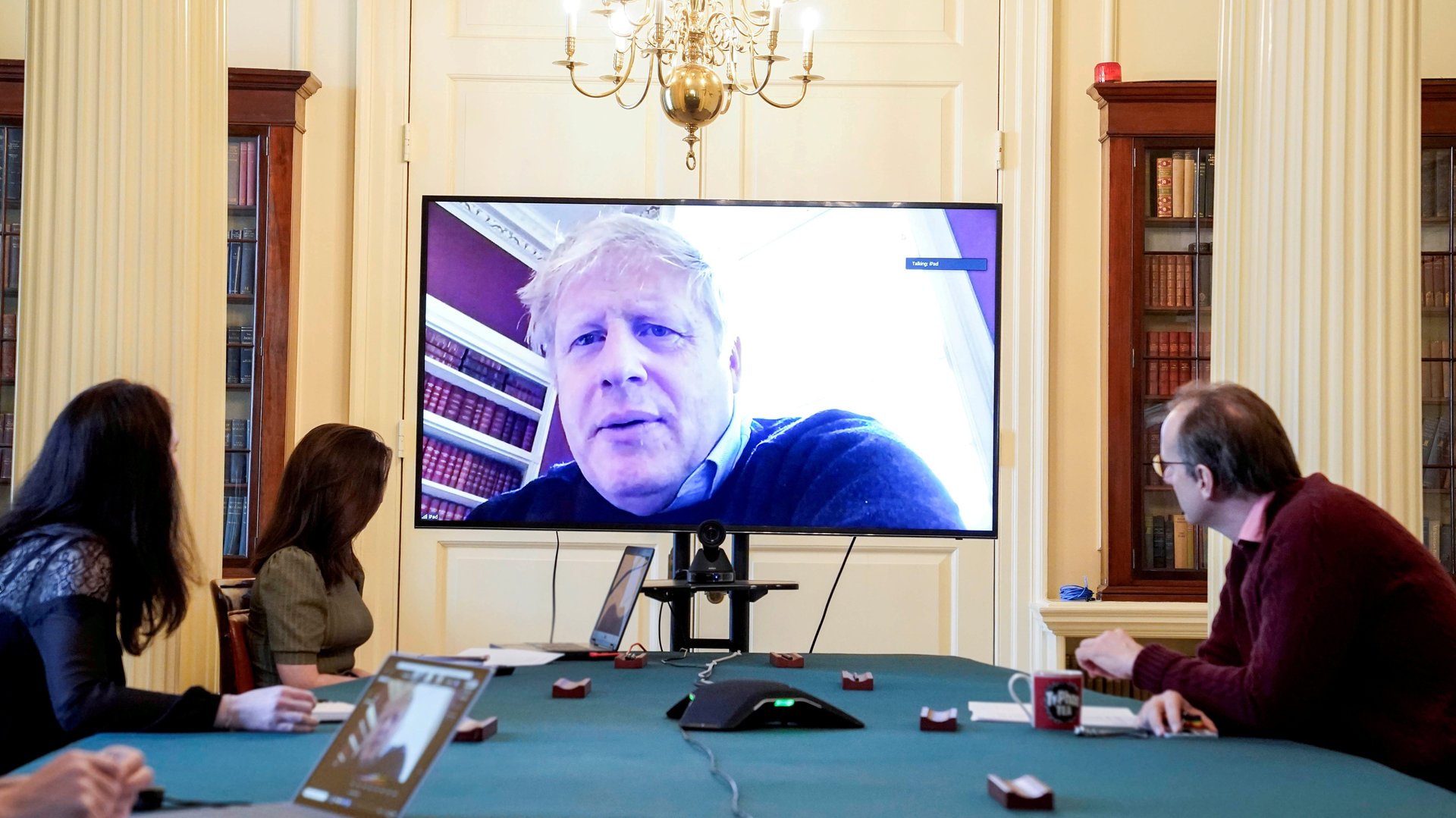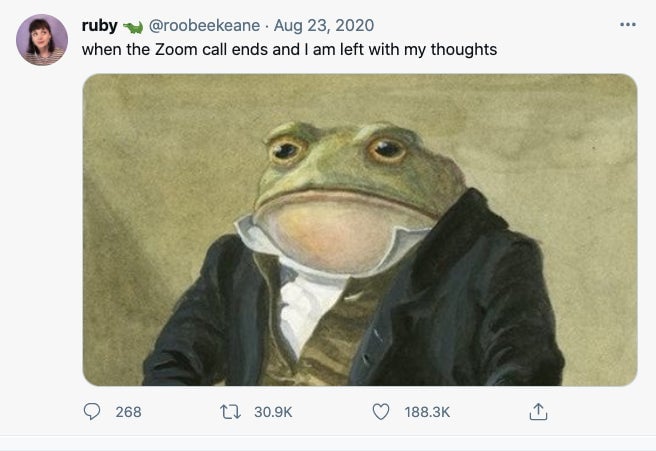Meetings are culture
To modern workers everywhere,


To modern workers everywhere,
Many of us have thoughts about Zoom meetings (cue the memes). But what are your Zoom meetings telling you about your company culture? 🔮
Matt Tucker, CEO of organizational software startup Koan, posed this question in a piece last week for Quartz at Work and offered some concrete advice: “Reflect on the meetings you took part in this past year. Think about what you observed, how everyone treated each other, and the general team dynamic… Though one action alone may seem inconsequential, these moments add up and they affect your outcomes.”
Here are some questions Tucker recommends asking yourself about the state of your company’s meeting habits 📝:
- Is your meeting agenda intentional or ad-hoc?
- Are your meetings inclusive or clique-ish?
- Are meeting participants truly present or clearly distracted?
- Is the meeting discussion honest or inauthentic?
If your answers don’t reflect your culture, or the one you hope to create, check out Tucker’s advice. Even small changes can help address the gap (and ensure better meetings).
Remember, a productive meeting is about more than just the meeting. “It’s about cultivating the right habits to help facilitate the right conversations, and ultimately nurture a culture of purpose and achievement,” Tucker writes. “That’s why these are hard questions.”—Michelle Cheng

Five things we learned this week
Your colleagues may be among the newly sober or sober-curious. There are several ways employers can support them should the return to offices also mark a return of the office happy hour.
Fathers are worried about their careers now that they’re doing more caregiving. But women still shoulder more of the caregiving burden.
Krispy Kreme is encouraging customers to get vaccinated. Behold the power of a free donut.
Boston mayor Marty Walsh will oversee the US Department of Labor. He will be the first former union member to lead the department in half a century.
Prince Harry will become an executive at a Silicon Valley startup. It’s not necessarily a career step down.
30-second case study
This past week, junior bankers at Goldman Sachs requested that their average workweek get capped at 80 hours, down from a more typical 95 hours. In a pitch deck, they asked management to abide by the bank’s official policy that junior bankers have time off on Fridays after 9pm and all day Saturday, and make other changes to alleviate stress and burnout among their ranks.
It isn’t the first time young analysts at the firm have drawn attention to the issue of overwork. Back in 2014, Goldman and other investment banks were responding to a raft of similar concerns about the demands placed on young talent, spurred in part by the death of an intern at Bank of America Merrill Lynch who collapsed after working three nights in a row. That’s when Goldman instated its Saturdays-off policy, and said it would set the expectation that junior bankers work 70 to 75 hours a week. Clearly the efforts did not stick.
The takeaway: If you want a high-paying job at an elite firm, why would you expect the path to be easy? That’s one way of looking at the situation. But even workers with less money or prestige may see themselves reflected in this issue, particularly entry-level employees who often feel they need to prove themselves. Burnout is real, and it can have a serious impact on mental and physical wellbeing. A Microsoft survey released Monday found that 54% of workers are burned out, and 38% are exhausted.
When grappling with the problem of junior-banker burnout back in 2014, Goldman Sachs CEO David Solomon—then co-head of the firm’s investment banking division—said the firm would carefully monitor young staffers’ working hours to make sure they didn’t creep back up. But as the breakdown in the effort suggests, and as Quartz at Work’s Sarah Todd reports, it isn’t easy to change course on overworking if it’s an established part of a company’s culture.
Quartz field guide interlude: Tesla takes on the world

Today in the US, electric vehicles account for only 1.8% of new car sales. Even in an optimistic scenario, only a quarter of the new cars sold in the US in 2030 will run on electricity.
Tesla’s cheapest model currently starts at $38,190, just under the average US price for a new car. To push EVs even cheaper, the company is betting on innovative manufacturing practices, better software, and longer-lasting batteries.
Workshop recap
While we each have a certain threshold for workplace stress, the pressures of the pandemic have likely lowered it, putting all of us at higher risk for burnout. But how do you know when you’ve crossed over from high stress to more dangerous burnout territory? And once you’ve gotten there, how do you regain your energy and build up resilience?
Last week, Quartz brought together a panel of experts on how to manage burnout, as part of our Quartz at Work (from home) workshop series. Quartz members can access the video playback and a detailed recap here.
Not yet a Quartz member? Sign up now for a 7-day free trial.
Words of wisdom
“Successfully building up our collective [workplace] empathy muscle means businesses aren’t as reliant on regulation and legislation to create equitable playing fields within our companies.”— Psych Hub co-founder Marjorie Morrison and SHRM president Johnny C. Taylor Jr.
Read Morrison and Taylor’s new piece in Quartz at Work on how empathy in the office can help heal some of society’s greatest ills.
ICYMI
Millennials and Gen Z did not enter the workforce as big fans of 9-to-5 office life. But it turns out these tech-savvy cohorts are the ones missing the office the most, Quartz at Work’s Cassie Werber reported in the early months of the pandemic. One year later, it’s worth checking in with young employees to see how their attitudes about the workday have shifted, particularly as more companies stage a return to the office.
You got the Memo!
Our best wishes for a productive and creative day. Please send any Krispy Kreme donuts, Zoom memes, and kombucha to [email protected]. Get the most out of Quartz by downloading our app and becoming a member. This week’s edition of The Memo was produced by Michelle Cheng, Heather Landy, and Sarah Todd.